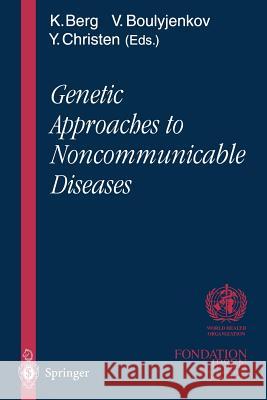Genetic Approaches to Noncommunicable Diseases » książka
Genetic Approaches to Noncommunicable Diseases
ISBN-13: 9783642646621 / Angielski / Miękka / 2011 / 155 str.
In recent years, the progress made in the prevention of mortality and morbidity caused by communicable diseases and malnutrition has changed the disease spectrum in both developed and, particularly developing countries. As a result, noncommunicable diseases, includ ing genetic disorders, have achieved considerable importance in public health. Furthermore, it is now evident that inherited predisposition is important in a number of common diseases that occur in later life, such as atherosclerosis, coronary heart disease, hypertension, diabetes mellitus, and in some rheumatic, oncological, and mental illnesses that appear at an early stage and develop into severe handicaps in predisposed people. Rapid advances in gene mapping concerned with international human genome research make it almost certain that the use of new genetic knowledge will dramatically increase the requirement for genetic approaches in the control of a wide spectrum of diseases, and will provide possibilities for their prevention and treatment in the form of changes in lifestyle, diet modification, periodic check-ups, or the administration of gene therapy. It appears that one of the main problems in delivering genetics services is the difficulty involved in informing the health profession and the community of the real sig nificance of genetic problems. There is, therefore, a need for international collaboration in improving genetic health education at all levels and in improving health through genetic approaches."











